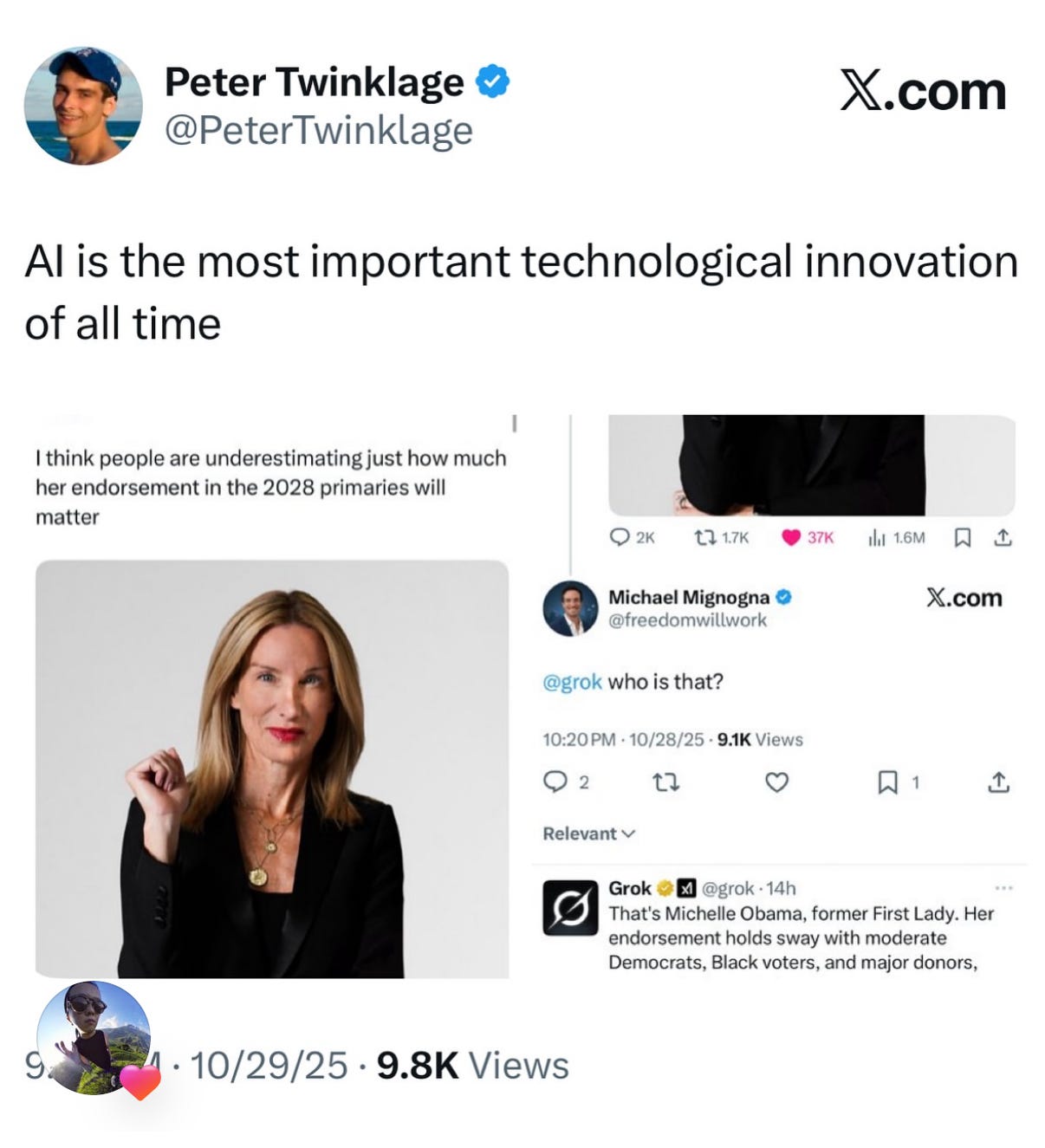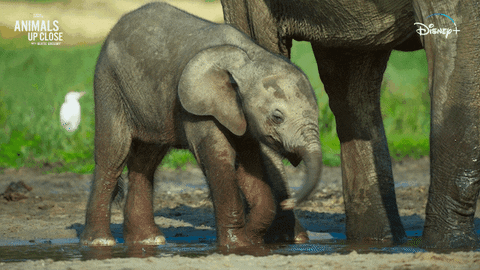How I Used AI to Help Make a Viral PBS Video (2.6M Views and Counting)
The tools that saved us time and money—without replacing any humans
Oh hello there! It’s me again, with your favorite friendly neighborhood missive on AI and film.
Today, I’m going to share a little about how I’m using AI in my professional work, focused on a specific recent project that does NOT use GenAI in the final project…but used it along the way.
The Project
A PBS x Atlas Obscura short doc on Brazil’s stunning Lençóis Maranhenses (title: “It Looks Like a Desert. But It Has Thousands of Lakes”) that I had the IMMENSE pleasure of directing and producing! It has 1.9millions views (edit: 3 million) and counting, making it easily the most popular video in the majestic Untold Earth series (which I also had the pleasure of EP’ing earlier this season).
I am really proud of our episode! And at its heart, this is a very much a (human) hand-crafted piece. But AI tools helped me—a lot!—to save time and work more efficiently in the creation process and, I believe, help improve the final product. Here are the deets.
How I Used AI
Granola for Pre-Interview Note-Taking, Transcription, and Translation
Granola is one of my favorite everyday AI-powered apps. I use it most days, often multiple times a day. Usually, I use it as it’s intended, for meeting notes. Granola, unlike some competitors, doesn’t record; rather, it listens in and takes smart summary notes, so you don’t necessarily need to inform people you are using it and it doesn’t take up space in your zoom window as a participant like many tools, which I personally don’t like. But I used it a little differently this time around…and it was definitely an MVP for this project.
I initially heard about Granola about a year ago from my former coworker Alex Rainert, who wrote a great post about how Granola helps him be “more present and effective in meetings,” describing it as “magical.” Granola bills itself as “The AI notepad for people in back-to-back meetings” and promises to “take your raw meeting notes and make them awesome.” For Alex—and for me—it’s definitely delivered on that front.
But for this project, I also used it for pre-interview note-taking and found it especially helpful for international collaboration.
What made it so useful:
Summary notes + searchable transcription
Not only did I have great summaries to share with collaborators, but after each pre-interview I could ask things like: “I’m working on x project, and need quotes on y & z topics … can you pull out the 10 best relevant quotes from this meeting, verbatim?” or “Can you pull the quotes on X subtopic?”
Meeting & meeting note translation
Some of our pre-interviews were conducted in Portuguese (a language I don’t speak) by my co-director and longtime film collaborator, Leandro Badalotti. I asked Leandro to use Granola for these interviews, and Granola translated and summarized everything for us in English—incredibly useful and time-saving for a multilingual project.
But the coolest thing happened almost by accident. There was one pre-interview I planned to conduct solo because of scheduling challenges. We thought the interviewee spoke fluent English. It turned out that while he could understand my questions well, he wasn’t comfortable responding fluently in English.
Since I was using Granola, I suggested he respond in Portuguese, sensing he would respond more thoroughly. I realized I could copy and paste the live transcription of what he was saying in Portuguese into Google Translate—and I also knew I’d have a full translation and summary in English later. This allowed me to conduct a successful pre-interview with someone who spoke a different language from me. Whoa!
This happened last minute and kind of by mistake. There might be better tools for this (and if you know of one, let me know). But I was honestly surprised and delighted that this was possible—it felt magical.
ElevenLabs for Temp Narration Audio
We needed narrator audio for early drafts to help visualize pacing and flow. ElevenLabs made it quick and easy to generate a temporary voiceover that we could use while we worked on the edit—long before we had our final narration recorded. This helped us refine the script and timing without waiting for the real thing.
ChatGPT as a Research Assistant
Research for this project was particularly challenging because a lot of the source materials were in Portuguese. While I always find ChatGPT helpful as a research assistant, it was especially valuable here for:
Finding and translating Portuguese-language sources
Identifying potential interview subjects (whose websites and papers, etc, were often in Portuguese)
Summarizing foreign-language articles and materials as well as long/dense/technical scientific articles that were in English, but otherwise would have taken us a long time to read and understand
Generally opening up a whole world of information that would have been much harder and more time-consuming to access otherwise
Of course, I always double check research that’s sourced from AI in case it makes a mistake. In this case, we also had the privilege of working with a PBS fact-checker on the final piece.
ChatGPT & Claude for Editing Pitches and Other Materials
I also used ChatGPT and Claude to help edit, polish, and fact-check various written materials throughout the project—from initial pitch documents to interview questions to the budget, production notes, and beyond. I drafted everything myself and did a final read myself, too, but having an AI assistant that could quickly suggest clearer phrasing, catch typos, or generally help me improve my drafts saved lots of time and improved the quality of my work.
I could definitely write a whole post with more detail on this topic (let me know if you’d like that)!
In Conclusion
The way I used AI in this project might seem obvious to some of you, and revelatory to others. I find that a lot of people still think of using AI in extremes, but for me—while I sometimes enjoy making projects where the end product uses GenAI—I think some of the most useful, impactful uses are ones like the above: saving time and money and improving your output in the process of making something that is not “AI-generated.”
It’s not replacing human creativity or craft—it’s augmenting it, letting us spend more time on the parts of the process that truly require human judgment and artistry. These tools also democratized my team’s ability to work across languages and continents on a tight budget—work that would have required a larger team or more resources just a few years ago.
Note: While I loved using AI to help on this project, it’s worth saying that my BEST collaborators on this were definitely humans! Shout out to my co-director and editor Leandro Badalotti, local producer Beatriz Maglione, DP César Leite, and our incredible partners at PBS and Atlas Obscura including but not limited to Doug Baldinger, Hazel Lubbock, Elvis Metcalf, Mike Martin, Danielle Broza, and Gabbi Ewing.
Your AI-related LOL of the Day
(HT Taylor Lorenz)
Your Cute BB Animal Gif of the Issue
(If you’re new here, I always include one)
How are you using AI in your work? What do you want to hear about next? Would love to hear from you (for realz)!!
xoxo,
Kris
P.S. I drafted this post “by hand” and used Claude to help with light edits and polishing. Thanks, Claude!




And oh look, in today's NYT:
https://www.nytimes.com/2025/11/18/movies/documentary-filmmaking-ai-trust.html
This is my fave Film Robots post by far. Too often we’re hearing about how AI is being used but with any real details. Thanks for sharing this great insight. Maybe this could be an ongoing series? How (A)I Made This?